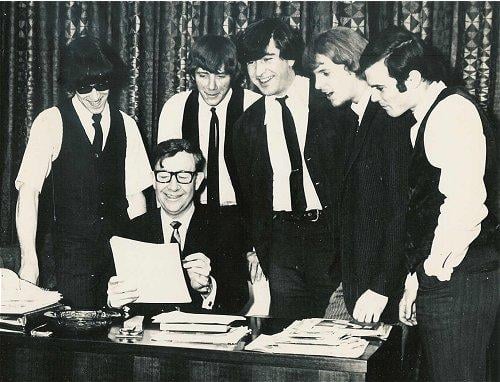Guest post by Tom White, panel and education director at A3C Hip Hop Festival.
As enticing as it may seem, a record deal may not be the best end game goal for every musician. While many artists view a record deal as the solution to their problems, it can actually open the door to a whole new set of problems if you’re not ready.
Keep in mind that if you manage to beat the odds and sign a record deal, you're essentially picking up a boss that loans you money and will not only want it back, but will want a profit on it. This boss will have constant input and critique on your music, sometimes forcing you to record music that may not reflect the sound that got you scouted out in the first place. The boss will also want a cut of the profits you generate for activities outside of music – things he/she may have had nothing to do with. And if you piss off the right people, this boss can make sure that your project never sees the light of day, effectively pressing pause on your career until your contract runs out.
Of course, these cases are the worst of the worst. There are artists for whom a record deal can be a great opportunity to get his/her music in front of a new audience. Labels can provide access to experienced industry vets with the ability to expand your network and build your contacts beyond what you could've imagined. You don’t need to completely rule out a label deal, but you should be careful, thoughtful and selective before you make it your primary goal. So how do you know if a record deal is the right move for you?
Here are 8 questions to ask yourself before signing on the dotted line:
- If you’re in a group or a band, have you worked out any lingering personal or financial issues? Squash whatever beef you might have and present a unified front going in. (An unwritten but practiced rule in the music industry is “divide and conquer.”) Here's how to create a band agreement.
- Has your team (publicist, manager, booking agent, lawyer, etc.) proven themselves to be competent in the roles they currently occupy? Can they communicate and send information to their label counterparts in a timely manner?
- If your current management doesn’t agree with a choice you’re making, are they able to tell you and communicate why effectively? And equally as important, do you respect their input? Going into a major label, you have the potential to be surrounded by sycophants, which has been the downfall of many a great artist. You will need a reality check every once in a while. If the label wants to appoint a co-manager, make sure they’re willing to work with him or her in tandem.
- What is the label’s track record with your genre? Have artists that have been signed fared well? Is there already an act signed that sounds similar to you?
- How good is your attorney’s relationship with the label that is looking to sign you? Will they fight for you during contract negotiations? (If you don’t have one at this point and the label is willing to offer you one, don’t do it. Hire a third party.)
- How have you built your fanbase? Are they buying your projects? Look at it like this: if you’ve been pumping out nothing but free albums, do you really anticipate them buying your major label debut if you haven’t put any value on your music beforehand?
- What can the label do for you that you can’t currently do on your own? Why or why not?
- Have you trademarked your logos and registered a copyright on your performer/band name? If you don’t have an official website for your music up yet (in 2014, why don’t you?), do you at least own the domain name?
If you are able to confidently answer these questions and are willing give up a percentage of your earnings, than by all means consider the deal. Remember that when considering a label deal, the name of the game is leverage. And that doesn’t just mean social media stats – other factors to consider are physical attendance at your shows and whether you can move units on your own. (Do you sell music at your shows? You can actually report those sales to SoundScan using a service like IndieHitMaker.com).
Having said all this, I reiterate my original point: don’t make a record deal your first priority and certainly don't chase them. Focus on making the best music you can, and get it in front of the people who will buy it. If you’re making waves, labels will come to you, and that’s a much better position to be in anyway.




